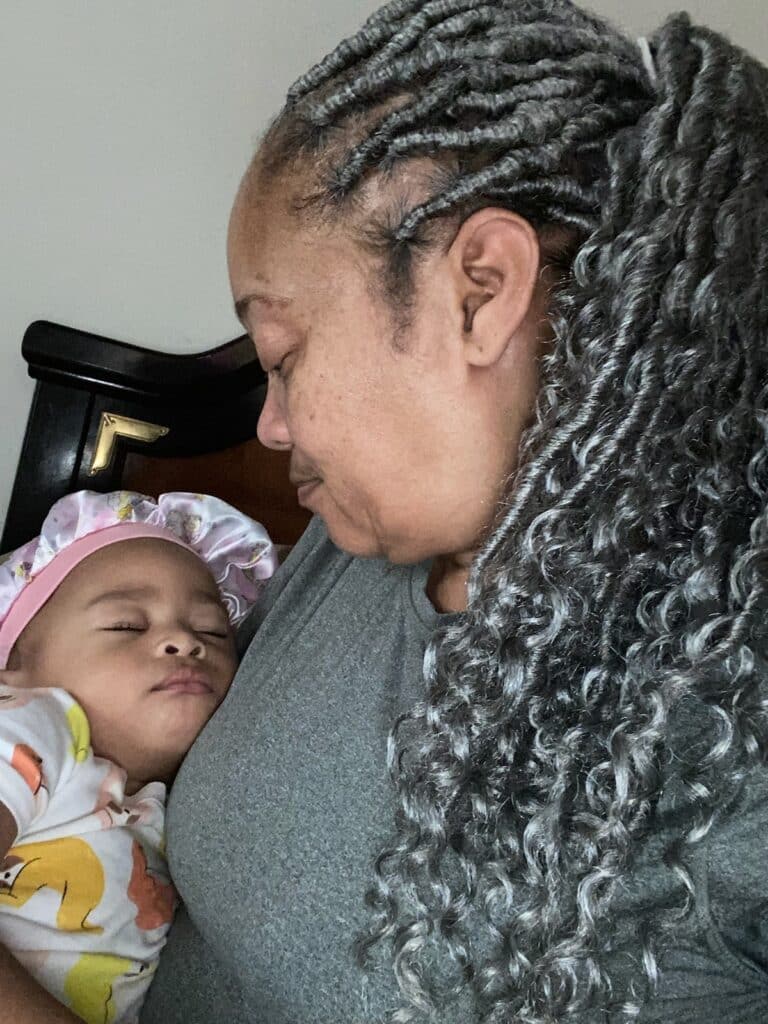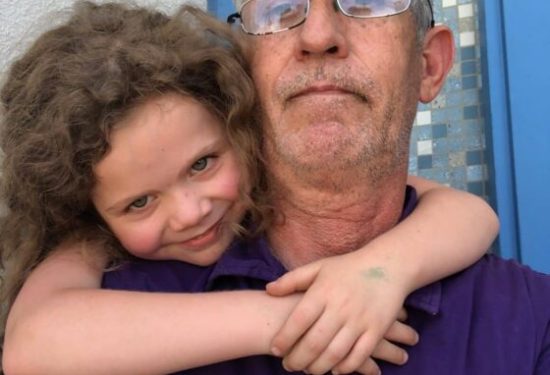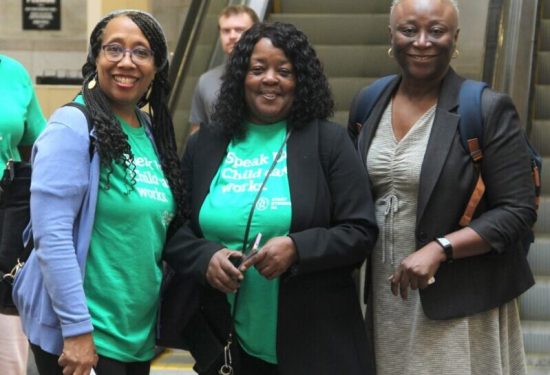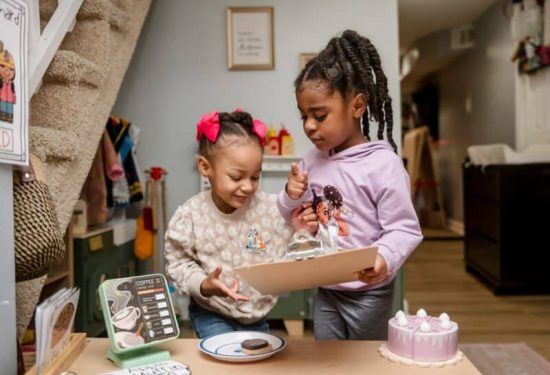Introduction from National Black Child Development Institute
In communities across the country, there are stories of families who rely on Family, Friend, and Neighbor (FFN) Care for child care. In these stories, the FFN caregivers, often grandmothers, cousins, aunties, and close family friends, lend their expertise to nurture and help build the foundation for healthy child development for children in their care. FFN caregivers also provide parents with young children stable, flexible, and culturally affirming care.
During March, in partnership with Home Grown, the National Black Child Development Institute (NBCDI), in celebration of Women’s History Month, honor the stories, contributions, and unwavering dedication of Women FFN caregivers.
May these stories of Women FFN caregivers, whose vital role and years of dedication to our Nation’s families and communities, circulate more appreciation of this invaluable expression of care. As we shine a light on their incredible stories, we look forward to uplifting their contributions to advocacy, policies, and programs that support and uplift them.
“A lot of mothers, they’re trying to do the best they can. As a family, friend and neighbor caregiver, we are blessed to be able to be that village and light and beacon of help to them.”
Glenda is a retired family, friend and neighbor (FFN) caregiver in Dorchester, Massachusetts who continues to advocate for the support of FFN caregivers across the country. Having been cared for in an FFN setting as a child, and then later becoming an FFN provider for many years, Glenda’s experience with FFN caregiving is rich.
“My grandmother was the first person that took care of me while my mom went to work,” she recalls as she reflects on her childhood. Throughout her career, Glenda worked as a government contractor, a pharmacist and other roles before transitioning to her role as a full-time FFN caregiver when she noticed a need for more child care providers in her community. “I believe in my heart that it is so imperative to promote FFN care, especially in the Black and Latinx communities because it is such a big part of our culture.”
Family, friend and neighbor care is the most utilized form of child care in the country with over 4 million home-based child care providers providing care to 7 million children ages 0-5 in the United States. This type of care is often the first choice for families due to the nurturing relationships, cultural responsiveness and ability to meet the diverse needs of the family.
As a child who was raised in FFN care and saw the prevalence of this care in her community, Glenda understands the cultural benefits FFN care has on young people. “For a lot of young people, their first experience of knowing who they are or whether or not they feel like a valuable asset to their community starts with their FFN caregiver,” she shared. FFN care is often provided by the grandmas, abuelas, aunties, big mamas and other familiar figures in the community. FFN caregivers have played a key role in stabilizing communities for decades by providing consistent and affordable care so that parents can go to work.
Author Arlene Edwards shares in her book, Community Mothering: The Relationship Between Mothering and the Community Work of Black Women, the history and significance of FFN caregiving in Black communities and how the practices can be traced back to Western Africa. In Western African culture, communities practiced a much more interdependent culture which encouraged shared responsibility amongst small children. When the transatlantic slave trade began in the U.S., the concept of caring for each other’s children became a survival strategy as children were often removed from their mothers and traded and sold to different families. This concept, known as othermothering, provided children with the maternal support needed to survive while creating a community culture of caregiving. Today, FFN caregivers are known to their communities in ways that go far beyond their role as caregivers. These roles often include being a social support system to those in need, a resource hub, an anchor, and an overall community mother. This concept of a community mother, that exists today in many communities, including Black and Latinx communities, is thought to be an essential part of the community culture. From the neighborhood’s big mamas to the aunts who always have their door open for children to grab a cold drink on a hot summer day, these kind, familiar environments have helped raise generations of children.
“Bring it to Yaya, precious.”
Maria is speaking to her 18 month granddaughter as she busily tries to keep up with 2 other toddlers while simultaneously taking a Zoom call. A native of Mecklenburg County, North Carolina, Maria cares for her two toddler grandchildren and her daughter’s friend’s 18 month old so the parents can go to work. They all sweetly call her “Yaya” but that is where the informality ends. “I love providing structure for them. I follow a schedule and a lesson plan. I want to make sure they are ready for pre-K and have all the love and support they need to meet their developmental milestones.”
Before running her own program as an FFN caregiver, Maria worked to support children in various roles. She worked in afterschool programs, served as a PTA president at the local elementary school her grand-daughter attends and supported a local home-based program as a child care aid. When her daughter and daughter-in-law became pregnant at the same time, she knew this was a perfect opportunity to work as a full-time FFN caregiver and also be able to spend time with her grandchildren.
“I love teaching, I love being around children and helping children. It makes me feel so good to be able to be the one to care for them,” she shared lovingly.
Maria is always receiving requests to take more children from her community into her care, but she often has to decline because of capacity. “Uh uh, these little ones need my full attention!”
Maria’s role in her community as a leader in education only adds to her allure as a community mother and resource for families around her. The families in her community often lean on her for information, connections to resources and expert advice. But while FFN caregivers in Black, Latinx, and other communities are highly valued by those around them, they often work for little to no pay and are frequently excluded from public systems. Home Grown has offered recommendations to better support FFN caregivers, such as extending child care subsidies to families who choose FFN care, utilizing networks to better support FFNs, and removing licensure requirements that may prevent FFN caregivers from accessing programs and funding. Until such changes are realized, caregivers like Maria have no choice but to draw on the other ways they feel compensated for their contributions to strengthening their communities.
“It’s not all about money and having a high head count, it’s about providing the children with love, structure, discipline and teaching them right from wrong. That’s what counts.”




